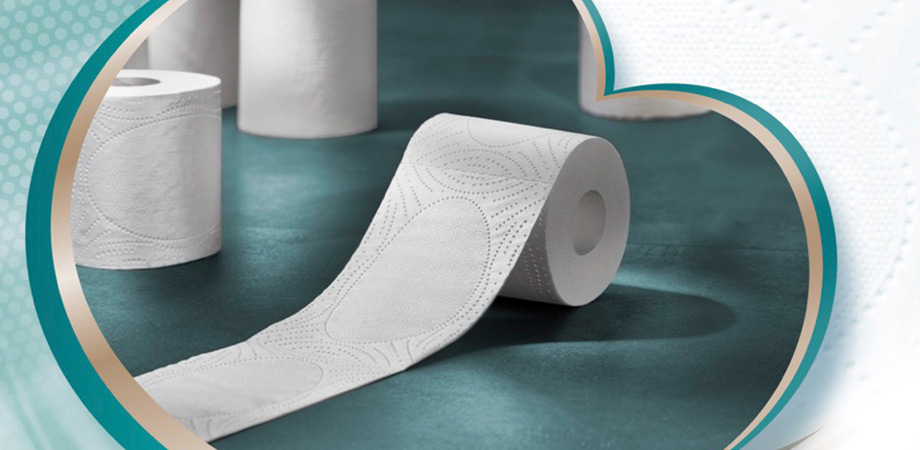Consumer Tissue

Lotus Just 1 – One sheet is enough, thanks to the quality and thickness of the paper.

Essity is the world’s second largest supplier of consumer tissue
Offering
Essity’s offering includes toilet paper, household towels, handkerchiefs, facial tissues, wet wipes and napkins. Products are sold under brands such as Edet, Lotus, Regio, Tempo, Vinda and Zewa. In Europe, Essity also sells products under retailer brands. Distribution channels are the retail trade and online sales.
Market positions
Essity is the world’s second largest supplier of consumer tissue. Essity’s brand portfolio comprises many strong brands.
In Europe, Essity is the market leader and holds a market share that is more than twice the size of the second largest player. Lotus, Tempo and Zewa are the leading brands in, for example, France, Germany and Russia. Cushelle, Velvet and Plenty are strong brands in the UK and Ireland, and Edet in the Nordic region and the Netherlands.
Essity is the market leader in China through its majority shareholding in Vinda. Vinda is the leading brand in China.
In Latin America, Essity is the market leader in Colombia and holds the number two position in Mexico. Familia and Regio are leading brands in Colombia and Mexico, respectively.
Read more about Essity’s market positions
Production facilities
At the end of 2019, Consumer Tissue had production at 47 sites in 19 countries.
Read more about Essity’s production facilities
Operations in 2019
Net sales increased 10.6% to SEK 49,904m (45,125). Organic net sales, which exclude exchange rate effects, acquisitions and divestments, increased 6.1%, of which volume accounted for 2.9% and price/mix for 3.2%. Excluding lower sales of mother reels resulting from production closures within the scope of Tissue Roadmap, organic net sales increased 6.6%. Organic net sales increased 2.6% in mature markets. In emerging markets, which accounted for 47% of net sales, organic net sales increased by 10.7%. Acquisitions in Latin America increased net sales by 0.1%. Exchange rate effects increased net sales by 4.4%.
Adjusted operating profit before amortization of acquisition-related intangible assets (adjusted EBITA) increased 60% (52% excluding currency translation effects and acquisitions) to SEK 5,321m (3,331). The increase was mainly due to higher prices, a better mix, higher volumes, lower raw material and energy costs, and cost savings. Stock revaluations, due to lower raw material prices, and higher distribution costs had a negative impact on earnings. Investments to increase growth resulted in higher sales and marketing costs.
Net sales
Organic net sales1)
Adjusted EBITA2)
Adjusted EBITA margin2)
Adjusted return on
capital employed2)
Emerging markets’ share of business area’s net sales
Organic net sales1)
in emerging markets
SEKm |
2019 |
2018 |
% |
||||
|
|||||||
Net sales |
49,904 |
45,125 |
11 |
||||
Organic net sales1), % |
+6.1% |
+2.6% |
|
||||
Adjusted EBITA2) |
5,321 |
3,331 |
60 |
||||
Adjusted EBITA margin2), % |
10.7 |
7.4 |
|
||||
Adjusted return on capital employed2), % |
11.2 |
7.4 |
|
||||
Operating cash flow |
4,870 |
2,388 |
104 |
||||
Investments in non-current assets |
–2,239 |
–3,074 |
|
||||
Average number of employees |
21,526 |
21,235 |
|
||||
Net sales by region
For Consumer Tissue, 33% of total net sales was related to retailer brands.
Net sales
Earnings trend
1) Excluding exchange rate effects, acquisitions and divestments.
2) Excluding items affecting comparability.